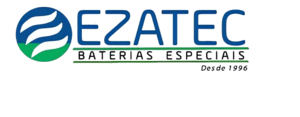Mitigation of DC Current Injection in Transformerless Grid-Connected Inverters Weichi Zhang B.Sc., M.Sc. A thesis submitted for the degree of Doctor of Philosophy April 2019 School of Engineering Newcastle University United Kingdom
Abstract With a large number of small-scale PV plants being connected to the utility grid, there is increasing interest in the use of transformerless systems for grid-connected inverter photovoltaic applications. Compared to transformer-coupled solutions, transformerless systems offer a typical efficiency increase of 1-2%, reduced system size and weight, and reductions in cost. However, the removal of the transformer has technical implications. In addition to the loss of galvanic isolation, DC current injection into the grid is a potential risk. Whilst desirable, the complete mitigation of DC current injection via conventional current control methods is known to be particularly challenging, and there are remaining implementation issues in previous studies. For this reason, this thesis aims to minimize DC current injection in grid-connected transformerless PV inverter systems. The first part of the thesis reviews the technical challenges and implementation issues in published DC measurement techniques and suppression methods. Given mathematical models, the performance of conventional current controllers in terms of DC and harmonics mitigation is analyzed and further confirmed in simulations and experiments under different operating conditions. As a result, the second part of the thesis introduces two DC suppression methods, a DC voltage mitigation approach and a DC link current sensing technique. The former method uses a combination of a passive attenuation circuit and a software filter stage to extract the DC voltage component, which allows for further digital control and DC component mitigation at the inverter output. It is proven to be a simple and highly effective solution, applicable for any grid-connected PV inverter systems. The DC link sensing study then investigates a control-based solution in which the dc injection is firstly accurately determined via extraction of the line frequency component from the DC link current and then mitigated with a closed loop. With an output current reconstruction process, this technique provides robust current control and effective DC suppression based on DC link current measurement, eliminating the need for the conventional output current sensor. Results from rated simulation models and a laboratory grid-connected inverter system are presented to demonstrate the accurate and robust performance of the proposed techniques. This thesis makes a positive contribution in the area of power quality control in grid-connected inverters, specifically mitigating the impact of DC injection into the grid which has influences on the network operating conditions and the design and manufacture of the PV power converter itself.

.gif)





Nenhum comentário:
Postar um comentário